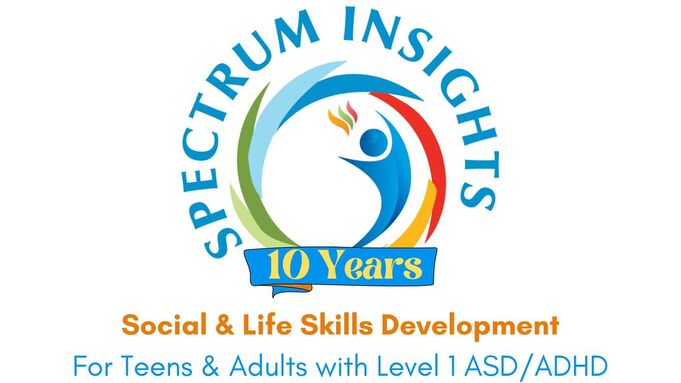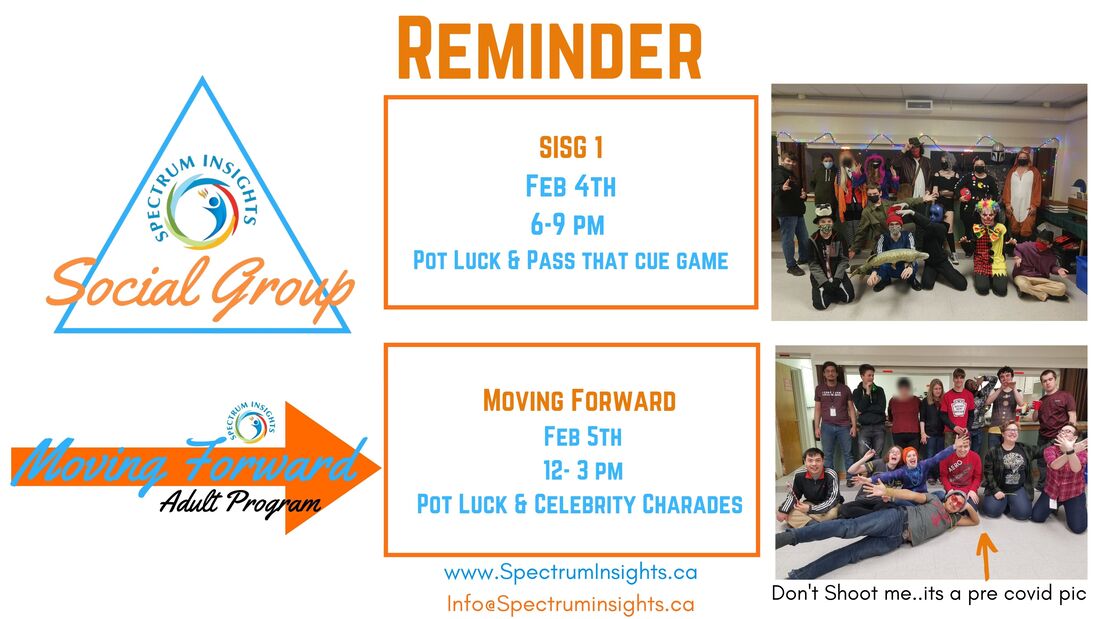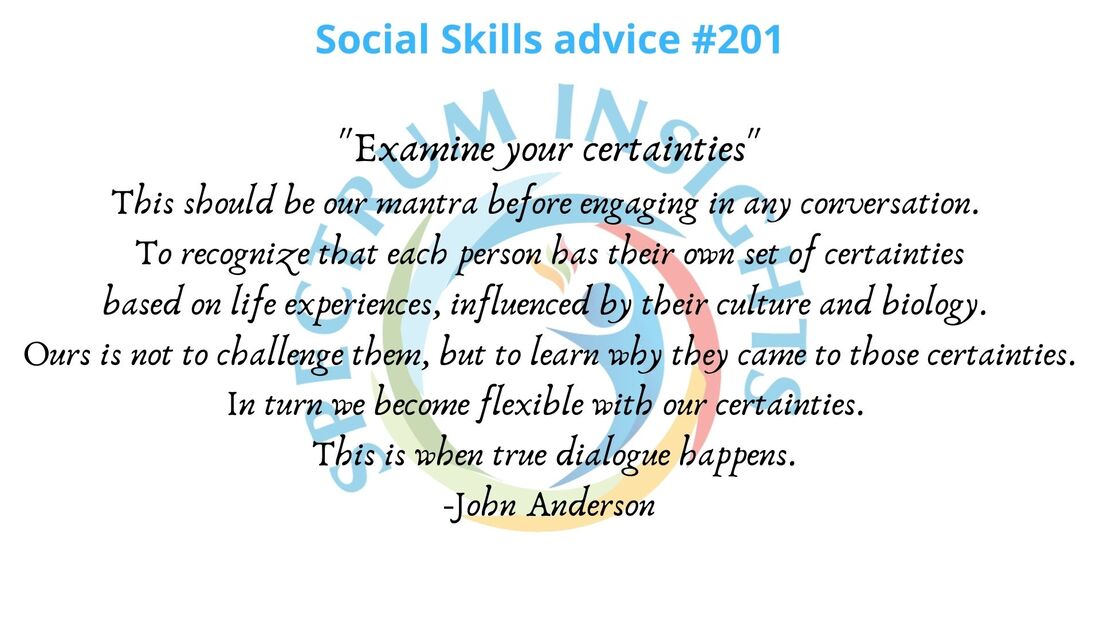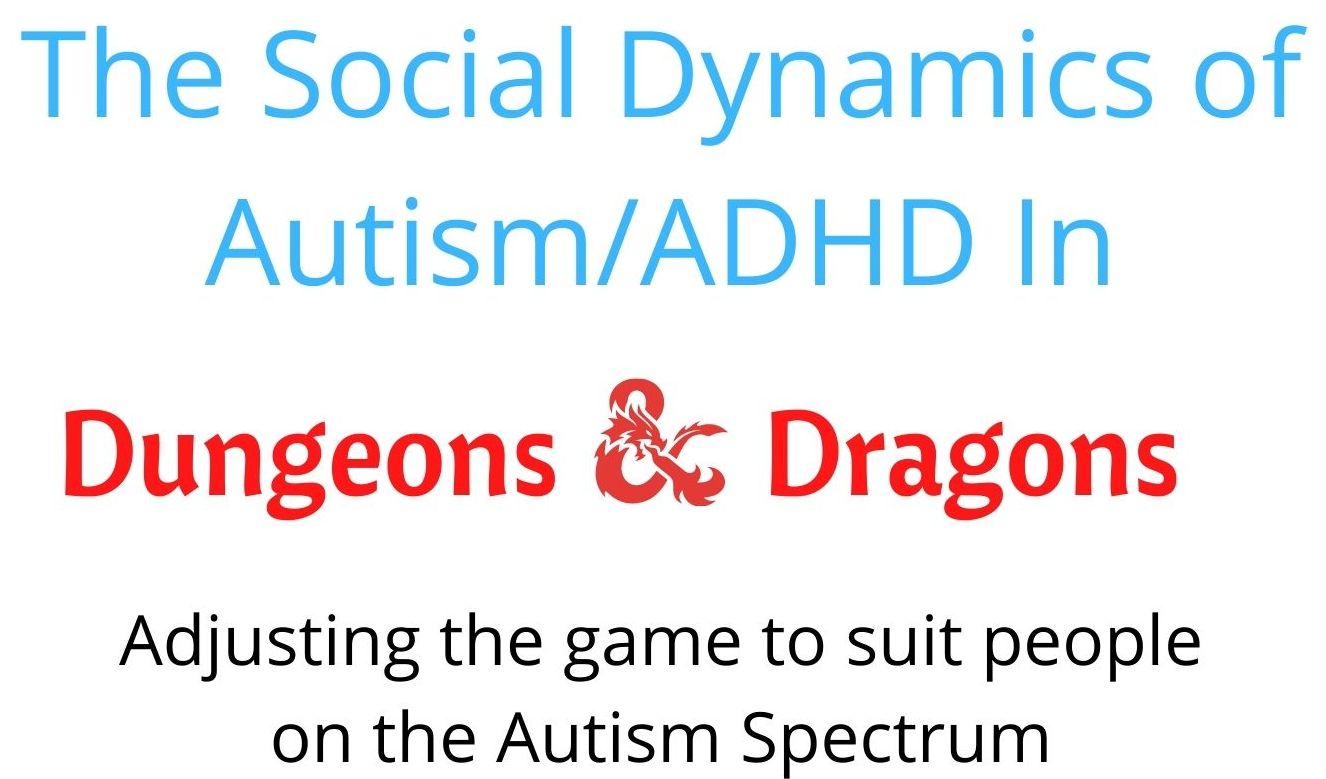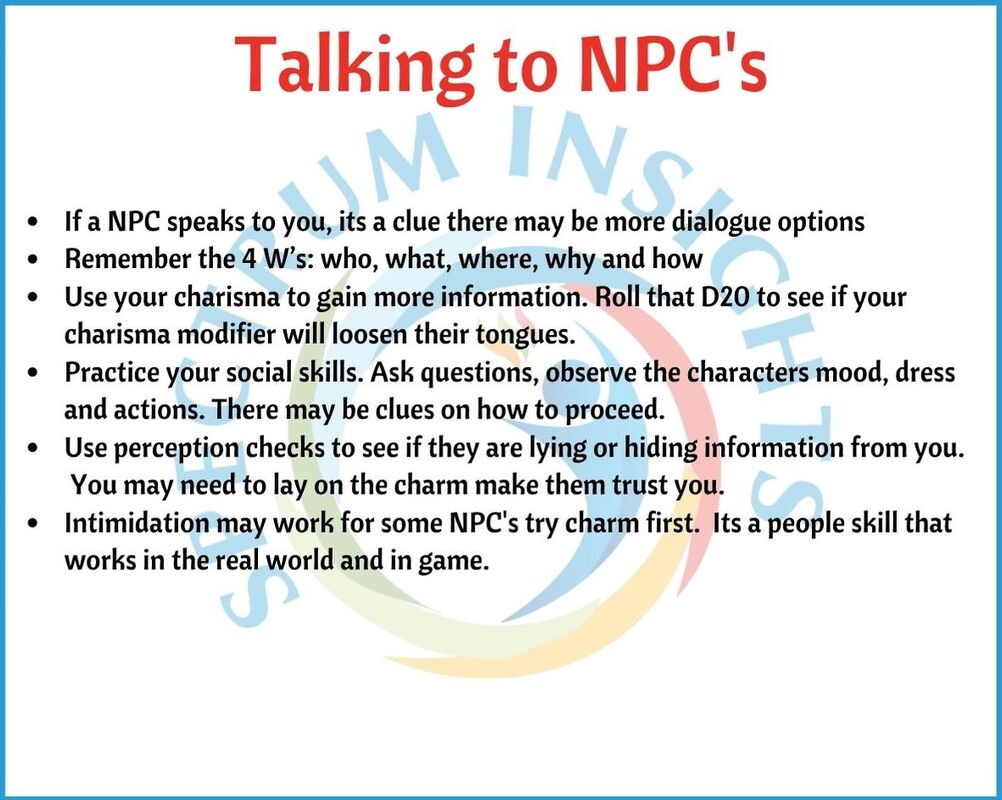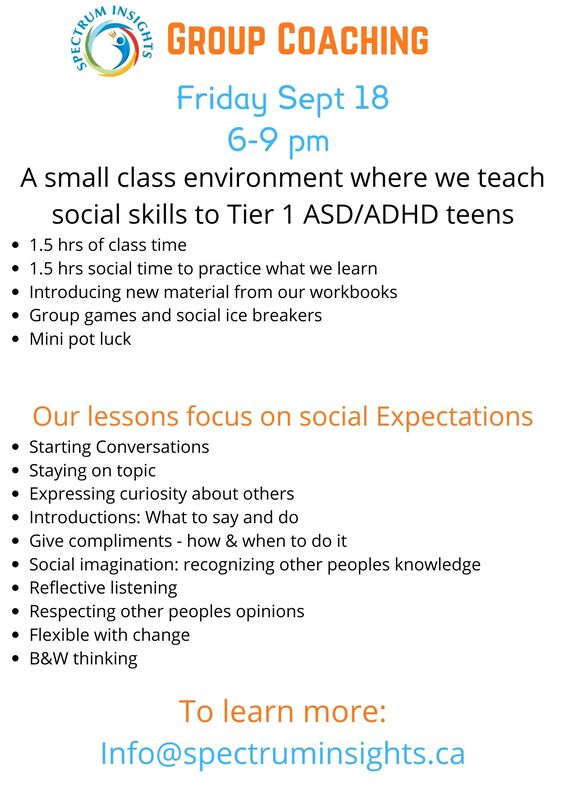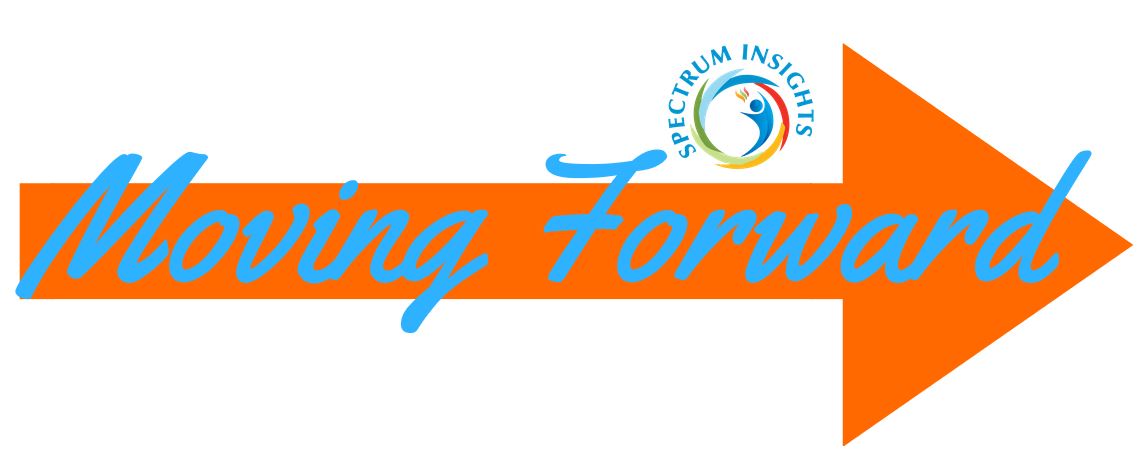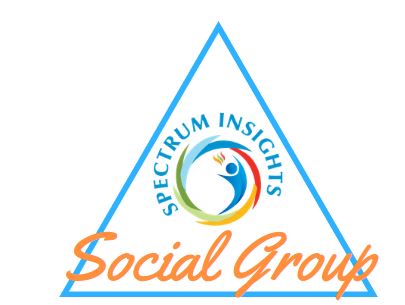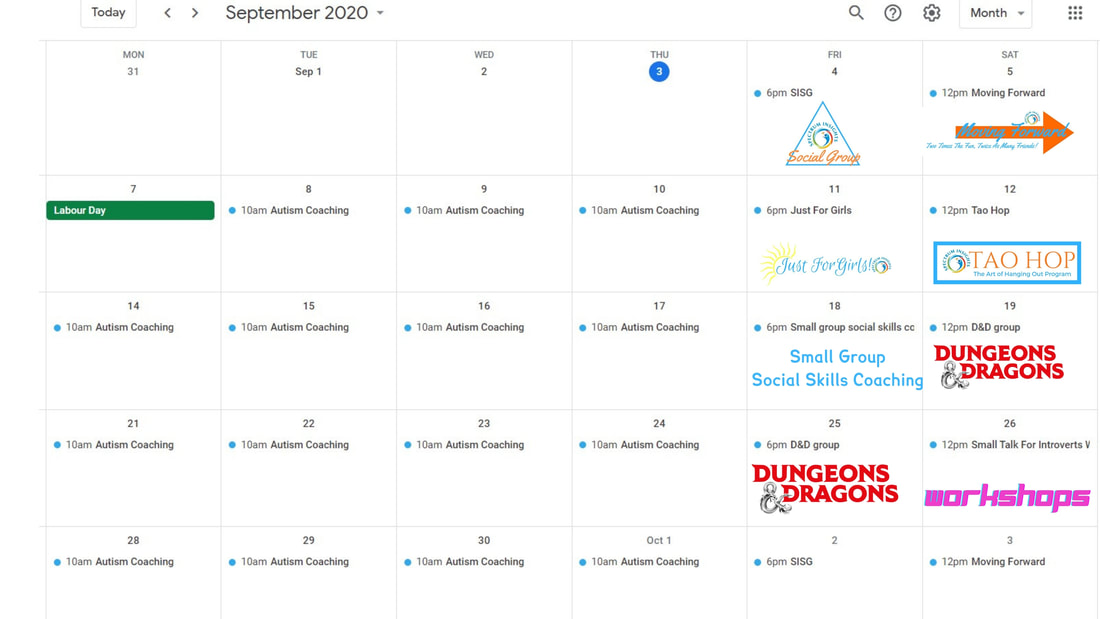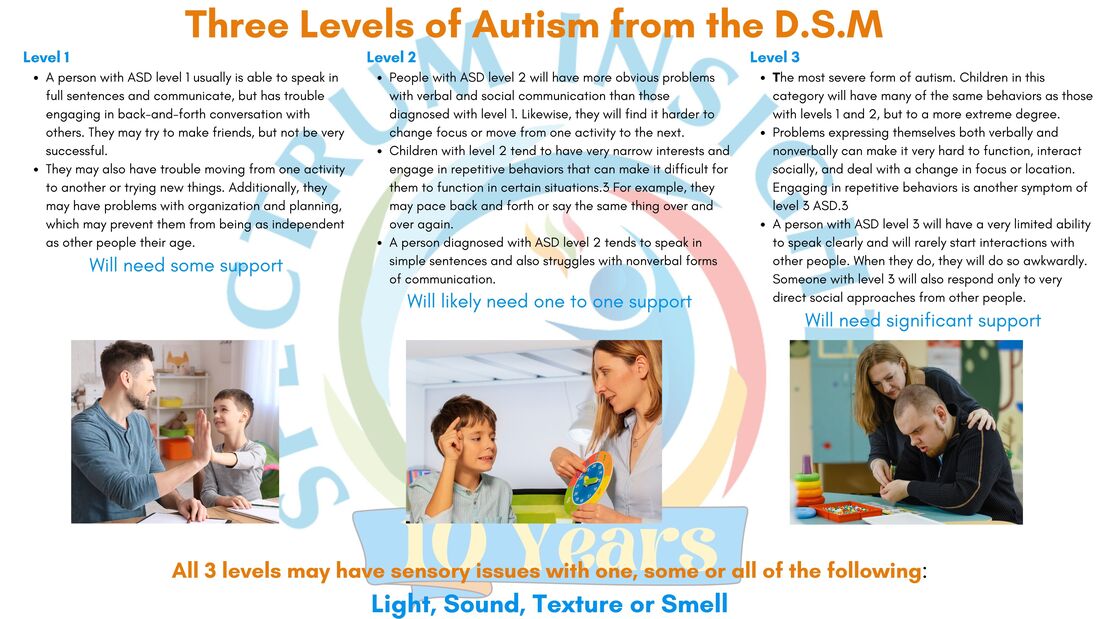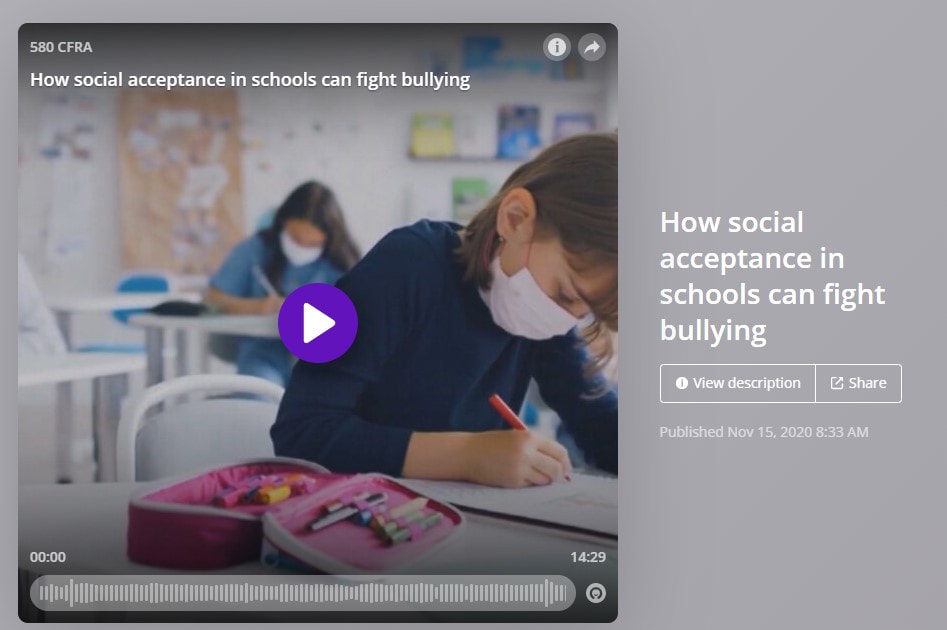|
Spectrum Insights has been running a D&D program where the focus is on teaching social skills to ASD/ADHD teens and young adults. The goal is to not only help them learn social skills in a fun way, but be able to join existing groups w/ peers and understand the social dynamics of game play. To date we have been focussing on social skills around the table. Primarily how to collaborate, communicate, listen, turn taking and not over sharing. All great skills to master. After a few months I noticed a great deal of clues in campaigns were being overlooked. I chalked this up to inexperienced players. To solve this, I would step out of my Dungeon Master role to give some advice and better understand the game. It helped when it came finding traps, looking for items, investigating objects but not for people or “Non Player Characters”. When a NPC in the game offered a clue, hints or where further social interaction would uncover a way to move the story forward, I would have to force the dialogue. The students were not delving into potential dialogue options. I did consider that my Dungeon Mastering may need work or I was not allowing the players to explore the game in their own unique way. I believe they are indeed exploring the D&D world in their own unique way and its through the Lens of ASD/ADHD. Students with ASD and many w/ ADHD have social challenges when it comes to curiosity about others. This is not just a general observation on my part: DSM-5 Autism Diagnostic Criteria
In a game where storytelling moves the game forward, communication is key. My students enjoy both the action & story telling aspects of the game but need help when it comes in game dialogue involving NPC’s and each other. I’ll give 3 short examples where students miss out by not furthering dialogue with NPCs:
What can you do improve the game for your ASD/ADHD students Do not think of the following as nagging, interrupting the game or stifling their imagination. Consider the following as an opportunity to practice their social skills in a fun setting. I encourage you to write out social reminders on cue cards, similar to spell or condition cards, this will benefit the group. At the end of this article there will be cue cards you can print off and cut out for your next D&D adventure. 1. Before sessions go over the game mechanics they need reminders of:
2. In game social tips: If your ASD players miss out on social cues, they will need a lot of reminders.
Have fun, be creative and flexible in your next D&D adventure. Dont forget, there are opportunities here to teach some great new skills to your ASD/ADHD players!
Moving Forward for adults is back in session! We enjoyed a modified pot luck, group game of "Kiss, Marry or Kill" and For some reason a "who is more flexible" contest happened. Our adult group has a very different dynamic than the younger groups. At SISG the teens gravitate to video games and board games. The adult group is happiest socializing and group games to help them interact. They are content to sit and talk for 3 hours, what more can you ask for when running a social group!!! We had our first social group since March. Some of these teens have not seen each other in 6 months!!! I am thrilled and thankful to once more be able to create a social space for our students. Numbers are reduced obviously, but 10 worked out really well. it was less overwhelming than our larger socials and lot quieter and less sensory over load. We played two great card games, "Coup" and "get the MacGuffin". Both are in house faves. There was some dancing, lots of video games and managed to serve a safe pot luck w/ pre packaged foods. All in all, a successful, safe first social. |
Spectrum Insights is in the news:
Click the image below to hear our interview on CFRA with Dahlia Kurtz Archives
July 2024

|
